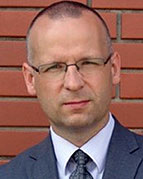The Heritage Foundation in partnership with the Wall Street Journal recently released its 2015 Index of Economic Freedom. Poland was ranked as 42nd globally, up eight places over last year's ranking.
The Index combines ten individual measures filed under four broad categories: rule of law (property rights, freedom from corruption); limited government (fiscal freedom, government spending); regulatory efficiency (business freedom, labour freedom, monetary freedom) and open markets (trade freedom, investment freedom, financial freedom).
Although still ranked as "moderately free" Poland has recorded its highest score ever. Poland's ranking position is the result of its strong efforts aimed at simplification of business regulation and improvements in anti-corruption policy.
But scratch beneath the surface and the picture is different. Red tape can still be a very frustrating and time consuming aspect of running a business in Poland. Restrictive market regulations still hinder business activity substantially. Over the years regulations and the inspections and bureaucracy that go with them have piled up. Business registration procedures are cumbersome, employment protection is stringent.
Many investors complain of over-regulation and burdensome bureaucratic processes. Complying with ineffective and unnecessary regulations costs businesses time and money. Establishing a LLC in Poland can take 3-4 weeks, assuming a smooth process.
Regulatory unpredictability and high levels of administrative red tape are recurring complaints of foreign investors. They must comply with a variety of staggering laws concerning taxation, health and safety and the environment. Rigid labour regulations prevent employers and employees from freely negotiating changes in terms and conditions of work resulting in a mismatch of labour supply and demand.
Consequently, on the ease of starting a business Poland stands at 85 in the World Bank’s 2015 edition of its “Doing Business: Understanding Regulations for Small and Medium-Size Enterprises” report.
On the other hand Poland has introduced a series of reforms in recent years to improve the climate for investments and is shedding now many of the previous bureaucratic layers.
.jpg)
Poland was the only country in the European Union to avoid recession in 2009 and in some respects is now one of the strongest economies in Europe. All this due to even partial business deregulation and some improvements in public spending policy.
Economic freedom always brings greater prosperity and there is a strong link between economic freedom and general prosperity and well-being of society. History provides ample evidence that when allowed to function free market generates massive national prosperity with high or full employment and rising standards of living. It is only when the state over regulates markets that capitalism fails and such regulations often raise business costs while providing little public benefit.
The top countries in the Heritage Index are Hong Kong, Singapore, New Zealand, Australia, Switzerland and Canada. It is no mistake or surprise that the freest nations of the world combine economic growth with low unemployment rates, high living standards and good working conditions.
The point should not be missed: economic freedom is the recipe for prosperity.
 Tomasz Machelski
Tomasz Machelski
www.legalmoneyreport.com
BUSINESS ONLINE CATALOG
